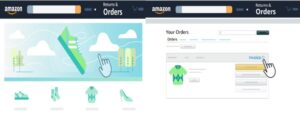UK VAT withholding and payment
Tax withholding
Tax withholding implement the UK’s low value consignments exemption for goods not exceeding £15 in value was withdrawn. This will make all imports subject to import VAT (and potentially customs duties). At the same time, a small consignment import simplification process is in place and online marketplaces (OMPs) must account for VAT on behalf of suppliers that use their platforms.
A simplification is available from 1 January 2021 for low value consignments where the total value of the goods (not the individual value of each item) does not exceed £135, excluding shipping costs and duty. EU suppliers must register with HM Revenue and Customs and charge VAT withholding tax at UK rates at the point of sale and then account for the VAT using normal VAT return procedures. The goods will then not be delayed by the requirement for VAT to be charged by customs at the point of entry. If such goods are sold via an OMP, it is the OMP that would account for VAT at the point of sale.
There are three ways to collect the revenue money.
Cheque
HMRC will send the refund (C79 certificate) money to the seller in the form of a chaque and the seller will exchange at the bank of his choice. According to the current situation, the HMRC cheque will be exchanged in the UK bank, it will not be possible to outside the UK bank.
VAT account
The HMRC will keep the VAT refund UK money in the seller’s VAT account, which can be used to deduct the tax and needs to be pay in the next declaration. Online marketplace withholds and payment methods are not applicable for global sellers.
Return the account provided by the seller
The HMRC can refund to the account according to the bank account provided by the seller (it can be a UK bank, or a third-party account such as Payoneer), the collection method of some third parties is uncertain, the refund will take a long time to process.
These three VAT refund methods are uncertain; it is very necessary to apply for a deferred account for customs clearance. The significance of deferred customs clearance in the UK is that the import VAT will no longer be paid during customs clearance and will be withheld and paid by the online marketplace’s sellers after sales, which avoids the long procedures of tax refunds and simplifies the declaration process.
The UK imported VAT deferred account is called a postponed VAT account. Both local UK companies and global cross-border ecommerce sellers with UK offshore VAT numbers can apply. However, companies that have previously had tax audits and poor credit cannot use VAT deferral.
The information required to apply for a VAT deferred account includes company information, VAT, EORI number, and VAT tax agent (Accountant) signing Tax representative authorisation.
Global cross-border ecommerce sellers who apply for VAT deferral only need to provide the certain information to the logistics company during logistics delivery to directly open a VAT deferred account. The logistics company can open a Customer Declaration System account (CDS) for the customer when the goods are imported and cleared. The Customer Declaration System account holds all VAT clearance deferred information, which needs to be reflected in the declaration record when VAT declaration is made every quarter.
UK customs charges
If you want to know the corresponding responsibilities and obligations of logistics customs clearance and VAT tax agents (Accountant) to provide VAT deferred UK customs charges for global cross-border e-commerce sellers, you must first understand the work processes and responsibilities of these service agencies.
If the seller applies for VAT deferral without the authorisation of the VAT agent (Accountant), HMRC has the right not to make the corresponding VAT deferred declaration.
Logistics customs clearance is a one-stop service system for sellers to provide logistics and distribution. Logistics companies and customs clearance agencies are two different companies. For example, some domestic logistics companies have overseas warehouses abroad and they are directly shipped to overseas warehouses through their own transportation channels, such as sea, rail, or air., and then distribute the goods to reduce logistics costs. Most similar logistics companies do not have their own customs clearance agencies and need to cooperate with local customs clearance companies.
Logistics Companies
Some large logistics companies have their own customs clearance department, such as DHL, UPS, TNT, etc., but the customs clearance department and the logistics department are completely separated.
There are also some small logistics companies, they are only responsible for collecting goods locally, as a transit provider, and then use the full range of third-party logistics services for international transportation and delivery. So, the sellers really contact the logistics company, not the customs clearance company. According to regulations, customs clearance companies must have the authorisation of a VAT tax agent (Accountant) to help sellers with VAT deferred customs clearance to ensure that VAT deferred goods can be declared in accordance with the requirements of the HMRC.
The HMRC is a service organisation that provides sellers with VAT tax declarations and related tax matters related to the docking of the UK Tax Office.
Some logistics companies have simplified the link of tax agencies in order to win customers. Asking the seller to provide HMRC information, but not asking the seller to provide tax agent authorisation (Accountant). After VAT deferred, the real situation is not directly related to logistics companies, but UK customs clearance companies and tax agents (Accountant), cargo warehouse distribution abroad will also be involved.
Therefore, the logistics company’s is very important, not only to confirm the authenticity of the VAT tax agent, but also to control where the goods are imported into the warehouse. Without the permission of the tax agent, submitting the tax agent’s information to the customs clearance company to apply for VAT customs clearance deferral is very irresponsible.
Please contact us if you have any questions about your tax obligations.


